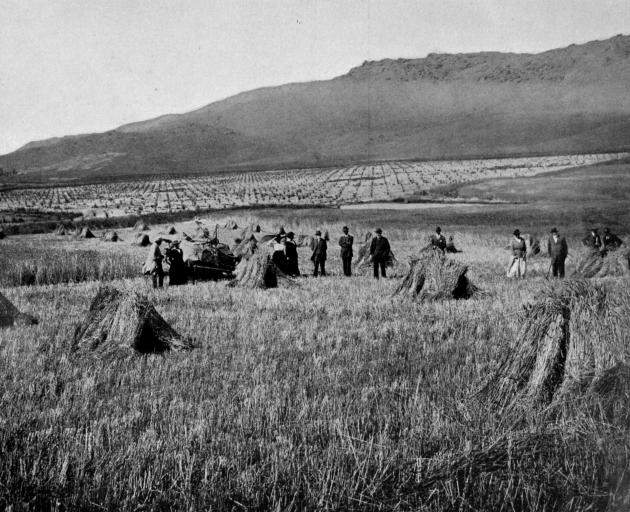
''There is one thing my committee noticed. There were no conveniences at Portobello for either sex, which must have been very inconvenient where so large a number travel at holiday time. We would respectfully suggest that perhaps your company could get in touch with one of the responsible bodies and have provision made as suggested, which would be greatly appreciated by the travelling public.''
He further stated that his directors would be pleased to discuss the matter with the board at some convenient time. Some doubt was expressed whether the board would be justified in spending the ratepayers' money in such a manner, although it was admitted that conveniences were badly needed.
Meteor mystery
A remarkable phenomenon is reported from Bourke, which recalls similar occurrences mentioned in the reports of early Australian explorers.
The manager of a sheep and cattle station near Bourke, together with his family, was at dinner about Christmas time, when all were startled by a loud explosion. The report seemed so close that it was thought that a petrol tank used for generating gas for the premises had burst.
A prompt examination, however, showed that the tank was intact. A further examination around the homestead failed to explain the cause of the explosion, nor could any sign of destruction be detected. It was subsequently ascertained that a settler living nine miles away from the station had also heard the explosion, which, therefore, must have been a heavy one.
The country in the vicinity is quite open. It is interesting to recall that Sturt notes in the account of his explorations, when he was trying to penetrate the centre of Australia, that he heard two mysterious explosions on successive days, seemingly near his camp.
He could not discover the scene of them and attributed the reports to gaseous outbursts of some kind. The two explosions occurred in the early twenties, and he reports that he heard another when on the Darling River in the forties.
As it is believed that there is nothing in the geological formation of the Bourke country to give rise to violent outbursts of gas, the theory is held that the recent explosion was caused by a falling meteor.
Meteors, if of any size, falling millions of miles out of space, must strike the earth, or the atmosphere surrounding it, with unimaginable force, and perhaps cause these puzzling explosions.
Soldiers with tuberculosis
The Minister of Public Health made a statement today regarding the steps that will have to be taken by his department to deal with the large number of cases of tubercular disease which are found to occur amongst returned soldiers.
''A report from the Public Health Department,'' said Mr Russell, ''shows that up to January 31, 13,623 soldiers have returned to New Zealand. The number of phthisis cases among these men, including cases which had developed after the arrival of the men in New Zealand, was 593. Of these, 402 had developed the disease before their return. There had been 41 deaths from tubercular disease.
- ODT, 8.2.1918.
COPIES OF PICTURE AVAILABLE FROM ODT FRONT OFFICE, LOWER STUART ST, OR WWW.OTAGOIMAGES.CO.NZ












